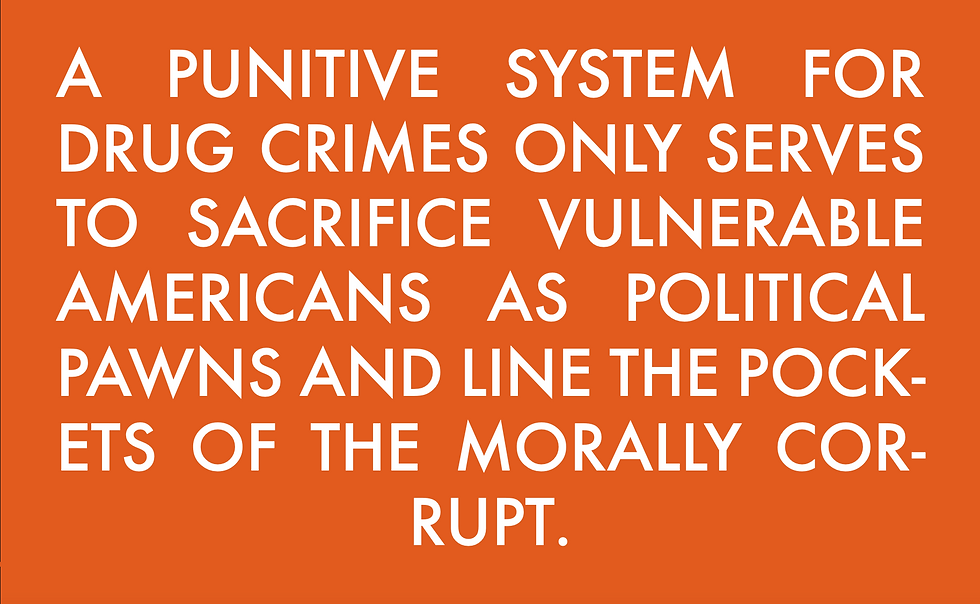Bess Olshen
“Everybody said that criminal justice reform couldn’t be done, but I got it done,” President Donald Trump declared with the passage of the First Step Act in 2018. Earning an 88-12 vote in the Senate, the bipartisan legislation allocated resources toward drug treatment and re-entry and commuted the sentences of 721 federal inmates.
Three years later, the United States remains the largest incarcerator in the world. According to The Sentencing Project, 2.12 million Americans are in prison. One in 81 Black adults is serving time in a state prison. These figures are no accident. They are the results of decades of systematic oppression by opportunistic politicians.
“Law and order” rhetoric took hold in the 1950s and 1960s as lawmakers depicted civil rights protesters as criminals. This rhetoric was supported by FBI reports of rising crime rates as the Baby Boomer generation came of age. In 1966, then-presidential candidate Richard Nixon blamed this rise on the “corrosive doctrine that every citizen possesses an inherent right to decide . . . which laws to obey."
ACCORDING TO THE SENTENCING PROJECT, 2.12 MILLION AMERICANS ARE IN PRISON. ONE IN 81 BLACK ADULTS IS SERVING TIME IN A STATE PRISON.
Media reports sensationalized riots following the assassination of Martin Luther King Jr. with racial imagery. By 1968, 81% of surveyed Americans agreed that “law and order has broken down in this country,” the majority blaming “Negroes who start riots.”
Widespread racial tensions facilitated the Republican Southern strategy in an effort to gain electoral support among white, conservative voters. Put simply by Nixon, “We’ll go after the racists.”
In 1982, President Ronald Reagan declared the War on Drugs. Reagan directed Department of Justice resources toward street crimes, particularly drug law enforcement. At the time, less than 2% of Americans viewed drugs as an important issue facing the nation.
To justify heavy spending, Reagan launched a media offensive centered on the use of crack cocaine. Stories propagated by his administration featured clear racial subtexts, referring to “crack babies” born in inner cities. Although crack cocaine is chemically identical to powder cocaine, crack users were disproportionately African American and of low socioeconomic status. By 1988, a majority of Americans believed illegal drugs were the country’s greatest problem.
As drugs gained public attention, Congress passed increasingly punitive sentencing policies. The 1984 Sentencing Reform Act established mandatory minimum sentencing, requiring judges to impose harsh penalties for drug offenses. The 1986 Anti-Drug Abuse Act created a 100:1 sentencing disparity between crack and powder cocaine, requiring 100 times the quantity of powder cocaine to trigger the same mandatory minimum sentence. The Anti-Drug Abuse Reauthorization Act in 1988 excluded offenders from federal benefits including student loans, increasing the difficulty of reentry into free society.
Although the War on Drugs was initiated by Republican politicians, Democrats matched their fervor for harsh sentencing. In his 1992 presidential campaign, Bill Clinton claimed that no Republican could be perceived as tougher on crime than he. Prior to the New Hampshire primary, Clinton returned to Arkansas to oversee the execution of Ricky Ray Rector, a Black man who had suffered parental abuse and a serious undiagnosed learning disorder as a child. This tough-on-crime approach enabled Clinton to shape himself as a “different sort of Democrat” in winning the general election.
In 1994, President Clinton signed the Violent Crime Control and Law Enforcement Act, bipartisan legislation drafted with the help of Joe Biden. A significant contributor to mass incarceration, the law increased funding for policing and prisons, authorized the death penalty for large-scale drug trafficking, and introduced a three-strikes policy that required life sentences for certain repeat offenses. By 2001, the United States had the highest incarceration in the world, with African Americans comprising more than 80% of prison populations in certain states.
Recognizing the expenses associated with mass incarceration, politicians over the past decade have softened their rhetoric in favor of “smart on crime” policies. In the 2020 presidential election, both candidates painted themselves as reformers. Nevertheless, the prison-industrial complex—the network of companies that currently profit from the prison system and their relationship with the government—remains an obstacle to reform.

Since 1989, the two largest private prison companies in the United States— the GEO Group and CoreCivic— have spent $25 million on lobbying federal legislators, pouring an additional $10 million into campaign contributions. These companies successfully advocate for policies that increase incarceration and immigrant detention; the private federal prison population more than doubled between 2000 and 2010.

In addition to financial contributions, the “revolving door” forefronts
corporations in setting policy. After securing the GEO Group $6.9 million in state funding, former Florida Senate President Joe Negron was hired as the company’s general counsel. This recycling of legislators, agency officials, and industry members enables private prison corporations to expand under reduced oversight.
Admittedly, many Americans support harsh sentencing laws to mitigate the detrimental effects of illegal drugs on users and their communities. Even the punitive 1994 crime bill received support from Black leaders as an imperfect solution to devastating levels of urban crime. Mass incarceration, however, has failed to address the causes of drug crimes—insufficient treatment for drug addiction and limited economic opportunities—while imprisoning generations of Black
Americans.
Harsh sentencing laws persist not to protect communities, but to increase the profits of the prison-industrial complex. A punitive system for drug crimes only serves to sacrifice vulnerable Americans as political pawns and line the pockets of the morally corrupt.
Comments